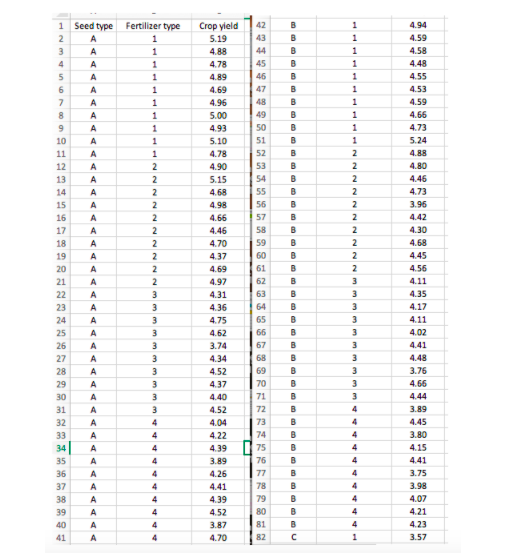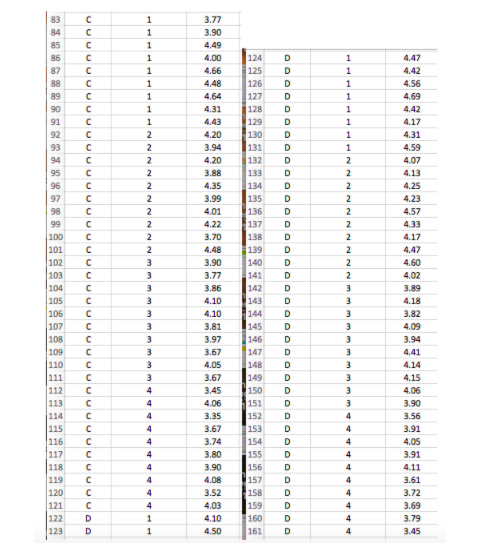Question
a) [4 marks] Identify the experimental design and determine the number of treatments, experimental units and replicates. b) [5 marks] Plot the residuals against the
a) [4 marks] Identify the experimental design and determine the number of treatments, experimental units and replicates.
b) [5 marks] Plot the residuals against the fitted values corresponding to the two-way ANOVA model for this analysis. What two key model assumptions can be examined with this plot and do they appear to be warranted?
c) [4 marks] Does the data provide enough evidence to indicate a significant interaction effect between type of seed and type of fertilizer? Conduct the appropriate hypothesis test at the 5% significance level; make sure you follow all the steps for hypothesis testing indicated in the Instructions section. Use software to generate the corresponding twoway ANOVA table, but show any other computations. d) [2 marks] Create the corresponding interaction plot and explain if it shows interaction between type of seed and type of fertilizer impacting on crop yield; is this consistent with your results for part c) above?
e) [3 marks] Based on your answer to part c), does it make sense to test the effect of type of seed or the effect of type of fertilizer on the mean crop yield? If so, are these effects significant? Justify your answers.
f) [2 marks] Which combinations of seed type and fertilizer type (treatment means) have the lowest and highest average crop yield?
g) [4 marks] Calculate the Bonferroni margin of error for the confidence intervals based on all pairwise differences between the treatment means. Show your manual calculations and use an overall 95% confidence level. Why is it appropriate to use the Bonferroni method for comparing treatment means?
h) [2 marks] Using the calculated margin of error from part g) and the pairwise confidence interval approach, test the following statements: ? For seed type A, does fertilizer type 1 vs. fertilizer type 2 make a significant difference on average crop yield? ? For fertilizer type 4, does seed type A vs. seed type B make a significant difference on average crop yield?


Step by Step Solution
There are 3 Steps involved in it
Step: 1

Get Instant Access to Expert-Tailored Solutions
See step-by-step solutions with expert insights and AI powered tools for academic success
Step: 2

Step: 3

Ace Your Homework with AI
Get the answers you need in no time with our AI-driven, step-by-step assistance
Get Started


